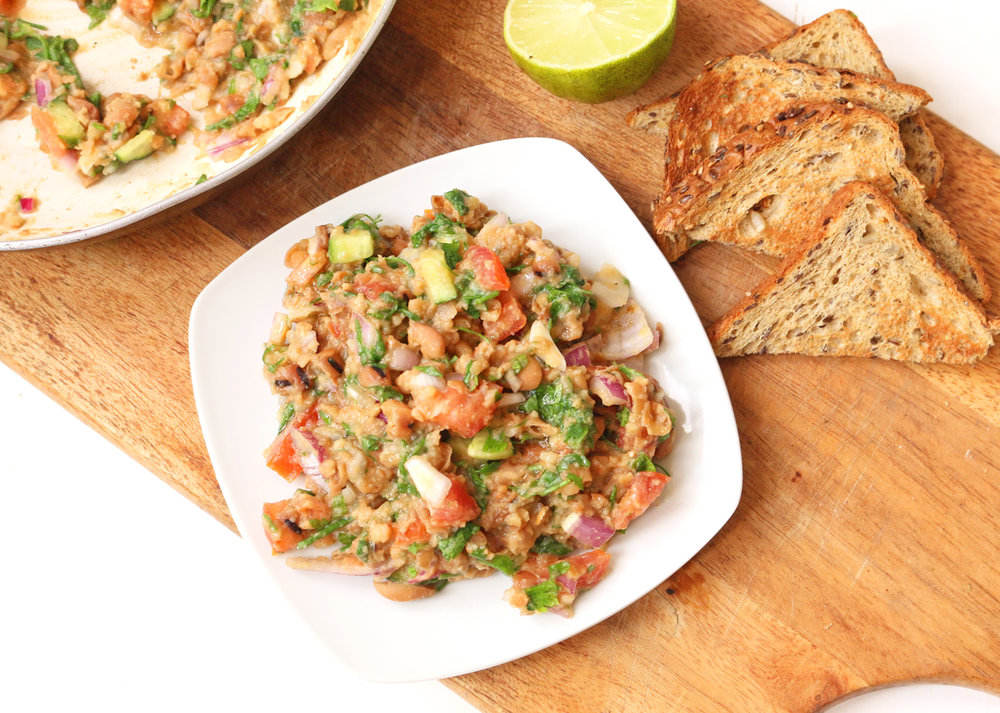While the majority of Egyptian cuisine makes liberal use of animal products, I feel the need to point out that not one, but two of Egypt’s national dishes, are 100% vegan; Koshary and Foul Mudammas. Both are cheap, easy to find, high in plant-based protein and downright delicious.

I often prepare store-bought canned Foul (pronounced fool, FYI) as a complement to my salads or a stuffing for wraps and sandwiches, but nothing compares to having some fresh foul for breakfast.
In my recipe the creamy and warm cumin-infused fava beans complement the crunchy fresh vegetables perfectly to create a hearty breakfast dish that comes together in minutes.
Instructions
Start by draining and rinsing your canned beans, before adding to a medium sized pan on low heat along with the water.
Using a fork or potato masher, mash the roughly until there are very few whole beans left. Stir in more water as needed along with the garlic, cumin, salt and pepper. Allow the mixture to heat thoroughly for a few minutes before turning off the heat.
Stir in your chopped veggies, parsley, lime juice and olive oil. Taste and adjust seasonings as needed.
Finish with a tablespoon of tahini on top and serve with your bread of choice.
Whatever you do, don’t skimp on the cumin and lime juice – oh and the onions. Foul just isn’t foul to me if there are no onions.
Ingredients
1 can of Fava Beans
½ - ¾ cups of water
1 medium tomato, diced
½ a medium red onion, finely chopped
1 clove garlic, minced
1 small cucumber, diced
2-3 tbsp fresh parsley, finely chopped
½ tbsp cumin powder
1 tbsp extra virgin olive oil
1 tbsp tahini
1 tbsp of lime juice
Sea salt and black pepper to taste

Although sometimes referred to as a blue-collar dish, everyone in Egypt eats Foul regardless of social class, and that’s thanks in large part to how nutritious it is. Not only are fava beans incredibly high in protein, they’re choc full of fiber and contain vitamin K, vitamin B6, zinc, copper, iron and magnesium among other minerals. They’re also a great source of folate (177 micrograms in every one-cup serving) which is useful for energy metabolism, the nervous system and healthy red blood cells.

